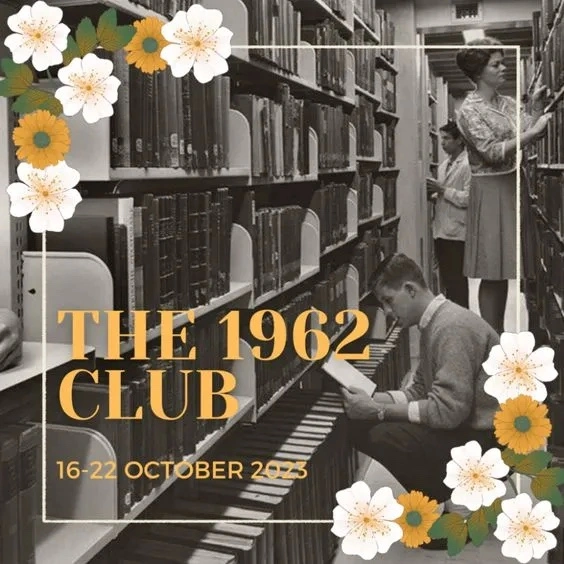The descriptions of the house called Apple Bough set this up to be a favourite book, equal to The Secret Garden, with its wild garden, memories of a loose brick in the kitchen to hide secret treasures and for me the defining delight:
“Apple Bough was gloriously unchanging; you could, the children reminded each other, put down something that belonged to you and nobody moved it. These books and toys which nobody moved had grown fabulous in their minds because it was so long since they had seen them. […] ‘And if there is one thing more annoying than another,’ Myra, the eldest, would say, ‘it is not being able to have your own things when you want them.’ ‘There is nothing nicer than anything else,’ Sebastian, the next eldest, would add, ‘about coming into a house where nothing is strange, where everything is exactly where you know it will be.’”

I suspect this was a book I found in my pillowcase from Father Christmas on Christmas morning when I was about ten. Various relatives arrived after lunch, so presents from our parents were kept for under the the tree in the afternoon. That meant the pillowcase had to contain something to keep us occupied for the morning. This would have been a perfect Christmas present, especially since I was interested in ballet at the time. A little later I went through a phase of reading the Ballet for Drina series by Jean Estoril. I’m not much enamoured of the sketchy pen and ink illustrations, but the ones featuring Ethel did stuck in my mind. Flicking through the illustrations, it also strikes me that there is not a single one of Sebastian playing his violin!

The Forums were an exceptionally musical family. Father David was a professional accompanist and their mother Polly had trained as a classical singer, abandoned that when she married, but transferred her talents to art. Both were exceptionally disorganised, but children tend to cope with that. Given their musicality, they were alert to any musical talent in their children. Luckily for them, second eldest Sebastian emerged as a child prodigy on the violin. This changed their lives utterly as the whole family upped sticks and started to tour the world in the wake of Sebastian.
“Polly and David said and believed that all the travelling they did was making the children world citizens. Actually, the more they travelled the more stubbornly English the children became.”
As part of their entourage, the family had a beloved governess, Miss Popple, keeping them organised and fed properly. Sadly, she insisted on feeding them boring English staples, thus denying them a real chance of tasting new flavours and world cuisines. As for clothes, any interesting local souvenirs such as a Japanese hat or lederhosen, bought by their mother Polly, were left behind by Miss Popple. They could have made wonderful dressing up accessories for the imaginative children. What’s worse, she dressed them to look like Prince Charles and Princess Anne. Poor children!
Travel and family ties
It was surprisingly early in the book that the other children admitted that they didn’t enjoy travelling. I wasn’t surprised that they hadn’t travelled back to see their grandparents because aeroplanes were so expensive in those days. But Myra expressed something that expat families really do miss out on, even if they stay put in one place: contact with their extended family. Myra says, “in proper families grandparents are visited after church on Sundays.” Of course, that is not true for many children that live any distance from their grandparents, and the church part is obviously not part of many children’s lives, but it can be a big sacrifice, for children, grandparents and also for parents, who lose the support and free babysitting that grandparents often offer. In my own experience, none of my own grandparents ever babysat my sister and I and the pattern continued into the next generation because we emigrated to the Netherlands and Germany. Even though we were relatively close, trips ‘home’ were for a fortnight at Christmas, split equally between our home towns, so those two weeks were the only time we could rely on grandparents childminding.
After four years of travelling. the children were all fantasising about the wonderful time they were going to spend in Devonshire with their grandparents. That is, until Sebastian was offered an unmissable opportunity and the family would be split for the first time for at least a month. The prospect hung over them like a “ monstrous crow, black as a tar-barrel”. I didn’t recognise the reference, but as it was printed within quotation marks, I checked. It is a line from Lewis Carroll’s Alice Through the Looking Glass, from the poem Tweedledum and Tweedledee. Correction! It is from a traditional nursery rhyme dating to the 19th century. But totally in keeping with the musical talents of the Forum family in Apple Bough, the names were originally used in a poem by John Byrom in reference to the rivalry between composers George Frideric Handel and Giovanni Bononcini, their supporters split along political lines, the stories for Handel and the Whigs for Bononcini:
Some say, compared to Bononcini,
That Myneer Handel’s but a Ninny
Others aver, that he to Handel
Is scarcely fit to hold a Candle
Strange all this difference should be
‘Twixt Tweedle-dum and Tweedle-dee
What’s in a name?
While we’re on a sidetrack, I’d like to remind myself of the people the children were named after. Myra was named after Dame Myra Hess, who I know from Joyce Grenfell’s epistolary memoir of the war years in London, Darling Ma, where she often attended Hess’s open air concerts. Wolfgang’s name is a little more self-explanatory, named after Mozart. Ethel is named after Dame Ethel Smyth, a woman I had never heard of, but who was a talented composer, involved in the suffragette movement, longterm friend of Virginia Woolf and supposed lover of various prominent women, including Emmeline Pankhurst. On a literary note, she was the inspiration for E.F. Benson’s Dodo novels. I left Sebastian till last because I was a little mystified that he was named after Bach, but in the book, the great composer is referred to as Hans Sebastian Bach, rather than the more usual Johann, with no explanation. Is it musician’s slang, equal to the way Streatfeild refers to the violin as a fiddle throughout?
Forgotten children, extended family and discovering your talents
Their parents were so wrapped up in Sebastian that they had very little time for the other three children: Myra, Wolfgang and Ethel. Fortunately, the family was surrounded by more responsible adults, including two sets of grandparents, Miss Popple, tutor Paul and the older Cockney couple who cooked and cleaned in the house they rented in London. As the children got older, it became clear that the other children were also talented, each in their own way. Wolfgang, the showoff, found an outlet in acting and the youngest, Ethel, was a natural dancer, bound to become a ballerina. Throughout the book, Myra was responsible and sensible and empathetic. Of course, she didn’t see this as a talent, but Noel Streatfeild was at pains to emphasise how valuable that is.
Book serendipity: revolution
My main 1962 Club book, Explosion in a Cathedral by Alejo Carpentier, is set in the Caribbean at the time of the French Revolution, which was fomenting revolutionary ideas in many places. At a rather lower level of jeopardy, at the suggestion of their grandfather, three of the Forum children were planning to revolt against their parents’ regime of travelling the world with their brother Sebastian. This became a secret mission, referred to as Operation Home.
1962 compared to today
The first December-related goodies appear in the shops now in August. Back in the early sixties, “Although it was only October, the wireless and the announcers on […] television were giving out how many shopping days it was to Christmas.” Those were the days!
Mrs Bottle, the housekeeper, mentioned Stir-up Sunday, the traditional day to stir your Christmas pudding. But she also says you shouldn’t stir it until the stir-up collect has been said. Our family always took turns to stir and make a wish, but I have never heard of it being on a particular day. It is apparently on the last Sunday before the start of Advent, presumably always the last one in November. The collect is a short prayer originally from the Book of Common Prayer, and the one on Stir-up Sunday starts “Stir up, we beseech thee, o Lord, the wills of thy faithful people…”, hence reminding people to stir their puddings.
Another difference between now and 1962 was that measles had decimated the cast of a show. Fortunately all four of the Forum children had had measles, whooping cough and chicken pox, so were unaffected. I’m pretty sure my sister and I had all three too, though we may have been inoculated. The whooping cough (pertussis) vaccine was introduced in the UK in 1957 (did they miss it while travelling?), measles in 1968, MMR (measles, mumps, rubella) in 1998. There is still no vaccine for chicken pox.
I really enjoyed my revisit of this childhood favourite. As an adult and a parent, I was just as keen to find out what happened to the family, particularly the overlooked Myra. As a somewhat chaotic parent myself, I sympathised with the impractical mother Polly. She never really had a voice as everyone did her thinking for her and told her things at the last minute so she did not overwhelm them with her emotional reactions to change. I’m not quite that bad, thank goodness! Another absent character was Sebastian, who was mostly portrayed as a one-dimensional character who lived and breathed his music.
As a child, I would have liked to know more about Ethel, but as an adult, I would like to know what became of Myra. I am also slightly mystified that nobody thought of sending her either to a boarding school or a local school somewhere near her grandparents or in London. And what would happen to Wolfgang once he was no longer a child actor?

The 1962 Club was hosted by Simon at Stuck in a Book and Karen at Kaggsy’s Bookish Ramblings.

How lovely – I could have done this one as well as I have that same edition on my shelves (I think bought as an adult as I imagine the one around in 1979 or such would have had a different cover). Regarding stir-up Sunday, that certainly still goes on, as my friend Gill, who is a churchwarden, mentions it on the relevant weekend!
LikeLike
Lovely post, thank you! This sounds like a fascinating choice for 1962!
LikeLike